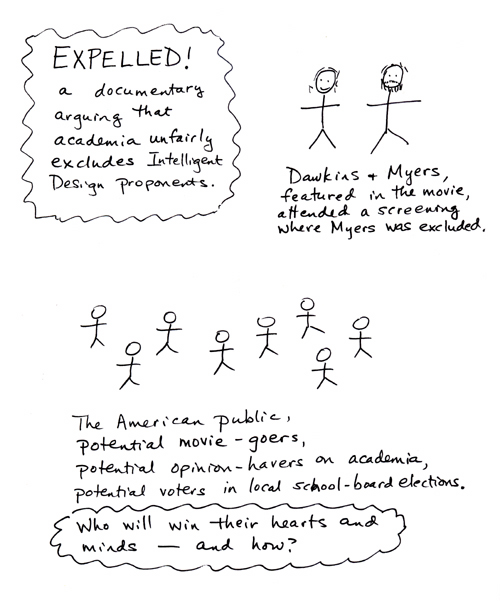Maybe you heard the news that PZ Myers and Richard Dawkins went to a screening of the documentary Expelled! in Minneapolis, except that, because he was recognized, PZ Myers was barred from the screening (despite having signed up ahead of time like the other attendees). Here’s the New York Times story, and Greg Laden has collected roughly a bajillion links to blog posts in the aftermath of the incident. The big debate seems to be whether Myers ought to have brought attention to the fact that he was barred from the screening, or whether he should have just gotten a haircut at the mall to pass the time until it was over.


